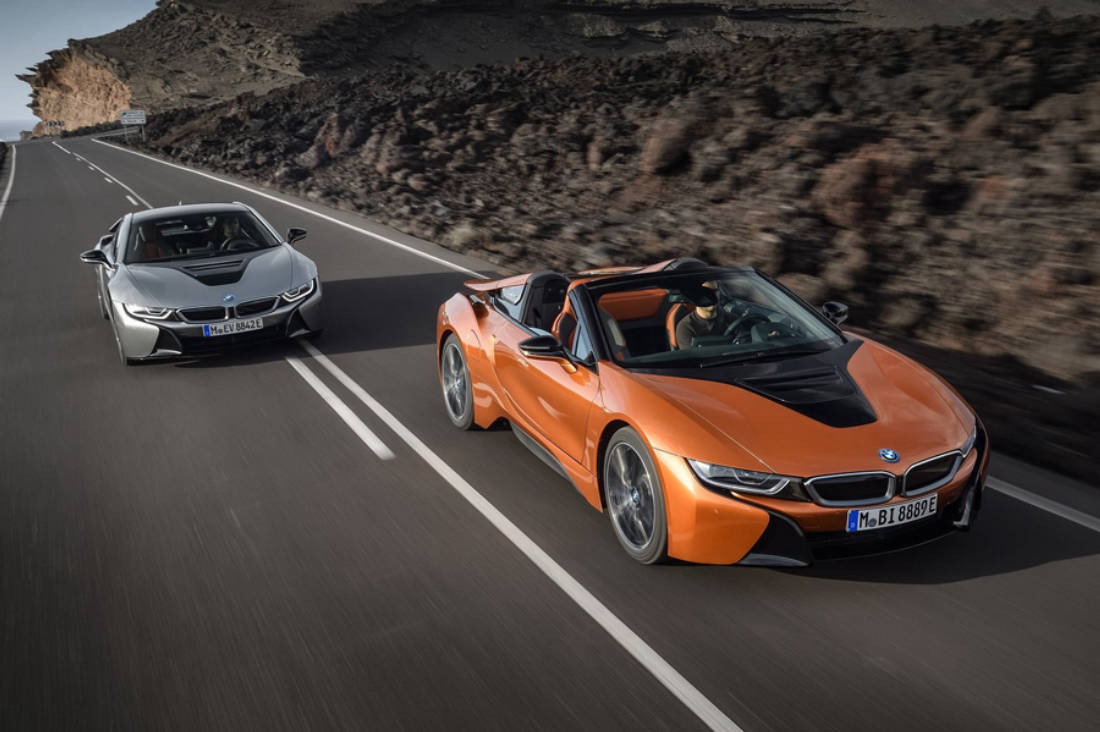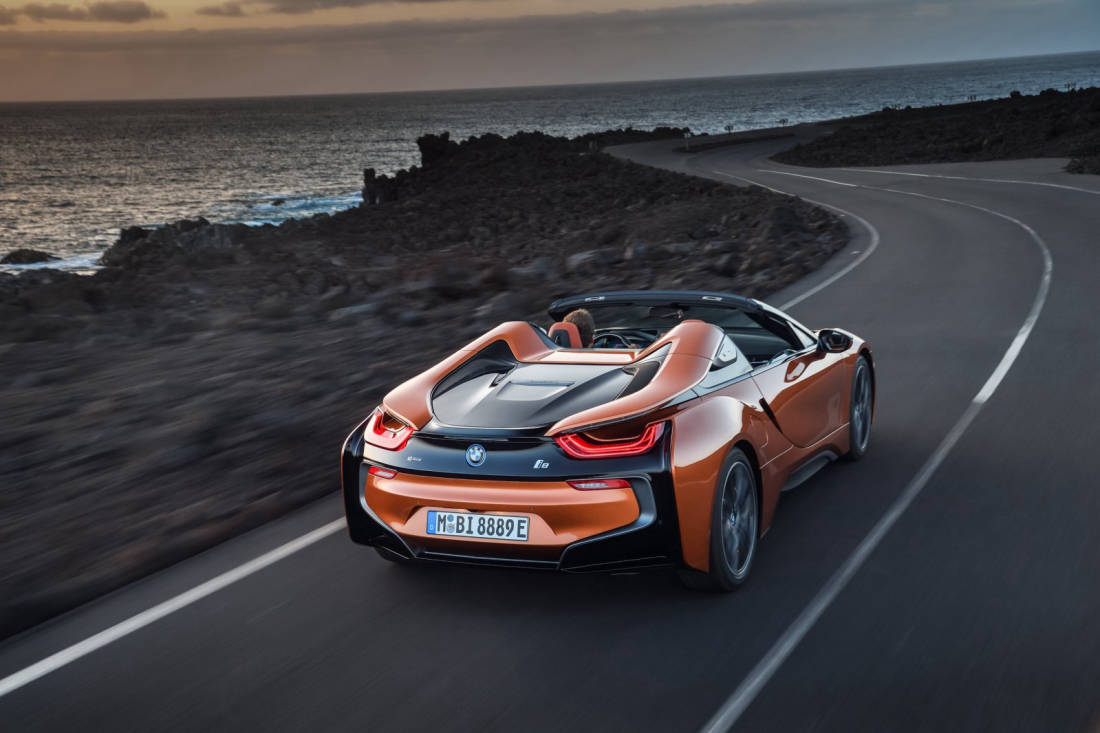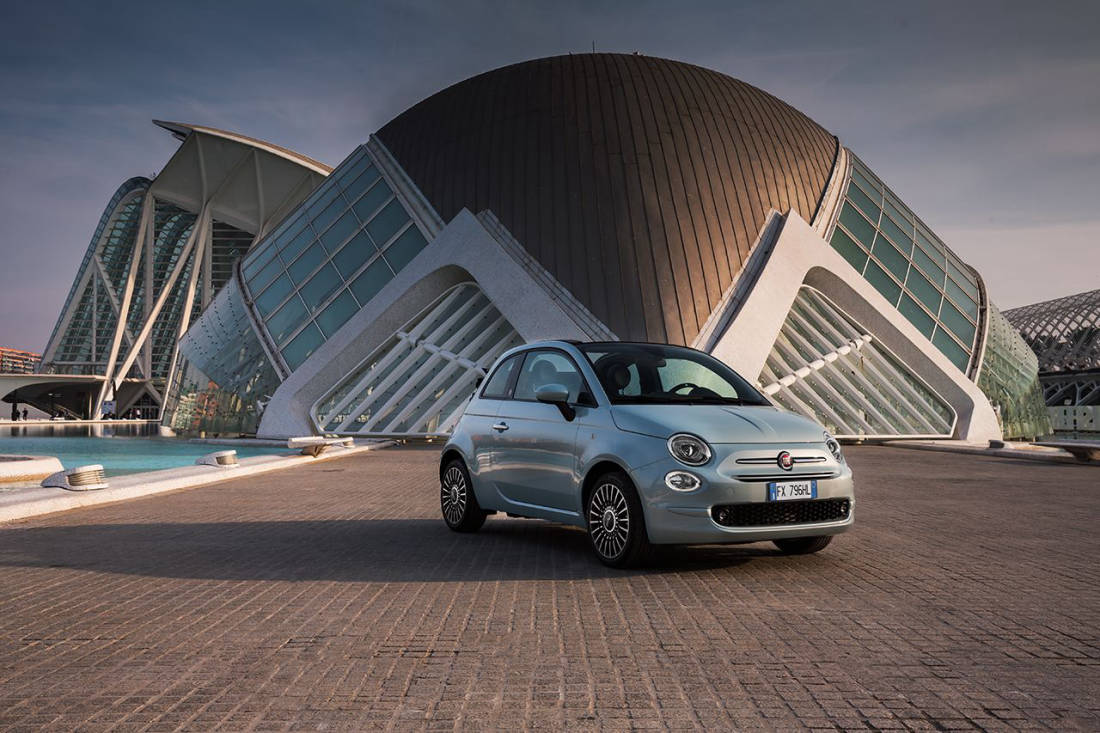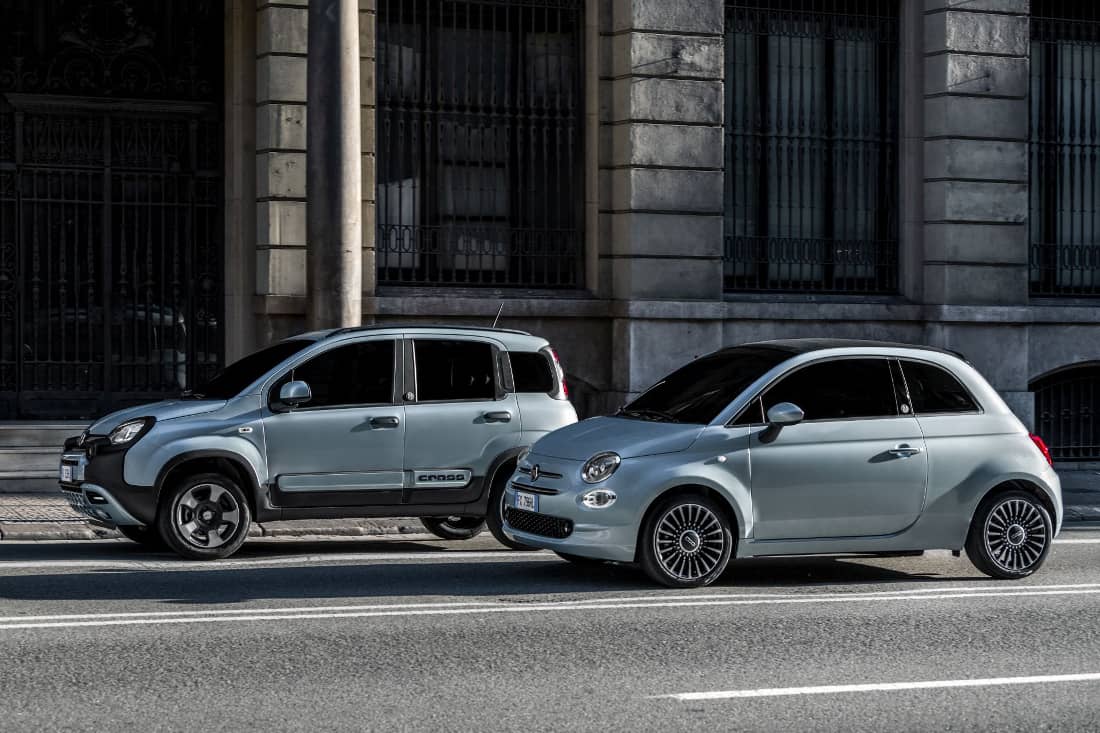What hybrid cars are there?
Model overview
There are different types of hybrid cars that differ in the way they use the two engines. Some hybrid cars are designed as mild hybrids, where the electric motor only serves to support the combustion engine, while other models are designed as full hybrids or plug-in hybrids, where the electric motor takes over a larger part of the drive power and the vehicle can be charged via an external power source such as a wallbox or charging station – in the case of the plug-in hybrid. These are the differences between mild hybrid, full hybrid and plug-in hybrid:
-
Mild hybrid: In a mild hybrid, the electric motor supports the combustion engine, for example, when starting the vehicle or accelerating. The energy generated during rolling and braking is stored in the battery. Purely electric driving is not planned. The main advantage of a mild hybrid is that it reduces fuel consumption and emissions without requiring the complexity and cost of a full hybrid system.
-
Full hybrid: A full hybrid can drive short distances completely electrically without the combustion engine being in operation. The battery is charged while driving, for example when driving downhill or braking. The electric motor then acts as a generator and supplies the electricity to the battery, in which it is stored. This process is called recuperation. Full hybrids offer greater fuel savings than mild hybrids, especially in urban traffic.
-
Plug-in hybrid: Plug-in hybrids are a further development of full hybrids. They have a larger battery that can be charged externally via the mains and can therefore drive longer distances purely electrically. This enables plug-in hybrid vehicles to drive purely electrically on routes of up to 100 kilometers and generate even fewer emissions as long as the battery is charged. When the battery is empty, plug-in hybrid cars work like a full hybrid.
Hybrid cars are available in almost all vehicle segments, as many manufacturers rely on the advantages of hybrid technology. Here are some of the common vehicle segments where hybrid cars can be found:
-
Compact cars: There are numerous hybrid models in this segment, including the Kia Niro and the Honda Jazz. These vehicles are known for their excellent fuel efficiency and practicality in urban traffic.
-
Mid-range cars: Hybrid models such as the Toyota Prius and the Hyundai Ioniq Hybrid can be found here. These vehicles offer more space and comfort than compact cars, but still maintain high fuel efficiency.
-
Luxury cars: In this segment, there are luxury hybrid models such as the Mercedes-Benz E-Class and the BMW 5 Series.
-
Luxury Class: Many luxury brands, including Lexus, BMW, and Mercedes-Benz, offer hybrid versions of their most popular models. These vehicles combine performance and luxury with increased fuel efficiency and reduced emissions of a hybrid.
-
SUVs and crossovers: Hybrid technology is also widely used in larger vehicles such as SUVs and crossover models. Examples include the Ford Kuga Hybrid, the Toyota C-HR and the Mitsubishi Outlander.
-
Sports cars: Some manufacturers have even introduced hybrid technology in high-performance vehicles. A well-known example of this is the BMW i8, a high-performance hybrid.
-
Vans and vans: The Ford Tourneo Custom and VW Multivan T7 models are examples of hybrid models in the commercial vehicle segment.


Specifications
Here are details and important data on other popular hybrid models:
| Hybrid model | Vehicle | Engines | Achievement |
|---|---|---|---|
| Dacia Jogger | Compact van | 1.6 liter gasoline hybrid | 104 kW (141 hp) |
| Kia Sportage | SUV | 1.6 liter gasoline hybrid | 169-195 kW (230-265 hp) |
| Cupra Formentor | SUV Coupe | 1.4 liter gasoline hybrid | 150-180 kW (204-245 hp) |
| Ford Kuga | SUV | 2.5 litre petrol hybrid | 140-165 kW (190-225 hp) |
| VW Tiguan | SUV | 1.4 liter gasoline hybrid | 180 kW (245 hp) |
| VW Golf | Compact car | 1.0-1.5 liter gasoline hybrid | 150-180 kW (204-245 hp) |
| Hyundai Kona | Crossover SUV | 1.6 liter gasoline hybrid | 104 kW (141 hp) |
| Kia Ceed Sportswagon | Mid-range station wagon | 1.6 liter gasoline hybrid | 104 kW (141 hp) |
| Mercedes-Benz C-Class | Mid-size sedan, station wagon | 2.0 litre petrol hybrid | 230-500 kW (313-680 hp) |
| Mitsubishi Eclipse Cross | Compact SUV | 2.4 litre petrol hybrid | 138 kW (188 hp) |
| Opel Astra | Compact car | 1.6 liter gasoline hybrid | 133-165 kW (180-225 hp) |
| Toyota Yaris Cross | Compact SUV | 1.5 litre petrol hybrid | 85 kW (116 hp) |
| Nissan Juke | SUV | 1.6 liter gasoline hybrid | 105 kW (143 hp) |
| Renault Captur / Mitsubishi ASX | Mini SUV | 1.6 liter gasoline hybrid | 105-116 kW (143-158 hp) |
How much do hybrid cars cost?
New prices
The cost of hybrid cars varies greatly depending on the make, model, and type of hybrid. In general, they are more expensive to purchase than comparable vehicles with a pure combustion engine. Mild hybrid models are usually cheaper than full hybrid and plug-in hybrid cars. The price range of currently popular hybrid cars ranges from around 25,000 euros basic new price for small car models to over 100,000 euros for luxury hybrid vehicles.
Despite higher purchase prices, it should be noted that the operating costs for hybrid cars are often lower because they consume less fuel, especially on short distances or in the city. In addition, there are sometimes financial subsidies or incentives from manufacturers that can reduce the purchase price for a hybrid car. Before buying a hybrid vehicle, it therefore makes sense to look at the new price as well as the maintenance costs for the vehicle.
The new prices for popular hybrid models at a glance:
| Hybrid model | Basic variant from |
|---|---|
| Dacia Jogger | 24,100 euros |
| Kia Sportage | 34,250 euros |
| Cupra Formentor | 44,260 euros |
| Ford Kuga | 41,400 euros |
| VW Tiguan | 43,510 euros |
| VW Golf | 32,225 euros |
| Hyundai Kona | 23,900 euros |
| Kia Ceed Sportwagon | 31,790 euros |
| Mercedes-Benz C-Class | 45,202 euros |
| Mitsubishi Eclipse Cross | 41,990 euros |
| Opel Astra | 40,980 euros |
| Toyota Yaris Cross | 25,340 euros |
| Nissan Juke | 29,990 euros |
| Renault Captur / Mitsubishi ASX | 26,450 euros / 28,390 euros |
Used car prices
On average, hybrid vehicles tend to be more expensive in the used car market than comparable vehicles with pure combustion engines. Prices for used hybrid cars vary depending on the model, age, mileage, and condition of the vehicle. Older hybrid models such as the Mitsubishi Colt or the Honda Civic from 2008 are already available from less than 5,000 euros. Hybrid small cars such as the Toyota Yaris, Fiat Panda or Fiat 500 will also be available between 10,000 and 15,000 euros in 2023.


For mid-range station wagons or sedans with hybrid drive, such as the Hyundai Ioniq Hybrid or Cupra Leon, the average used car prices are around 15,000 to 25,000 euros. In 2023, buyers will have to invest the most for the hybrid variants of premium manufacturers such as Audi, Mercedes-Benz or BMW, as well as for hybrid cars in the SUV and van or van classes. For example, for models such as the Toyota C-HR, Kia Niro or BMW 2 Series Active Tourer, sums of at least 20,000 euros are due on the used car market. Large and luxurious hybrid SUVs from Land Rover, Range Rover, Porsche or Bentley can even cost over 200,000 euros.
Result
Hybrid cars are now available in various technical forms – mild hybrid, full hybrid and plug-in hybrid – as well as as engine variants of almost every car model. The vehicles offer an efficient and fuel-efficient alternative to conventional combustion engines, especially when used in the city or on short distances. Although the initial cost of hybrid cars is often higher, the long-term savings on fuel and upkeep can offset these costs. Accordingly, it is worthwhile for buyers to take into account individual driving conditions and habits in order to choose the most affordable hybrid model.
